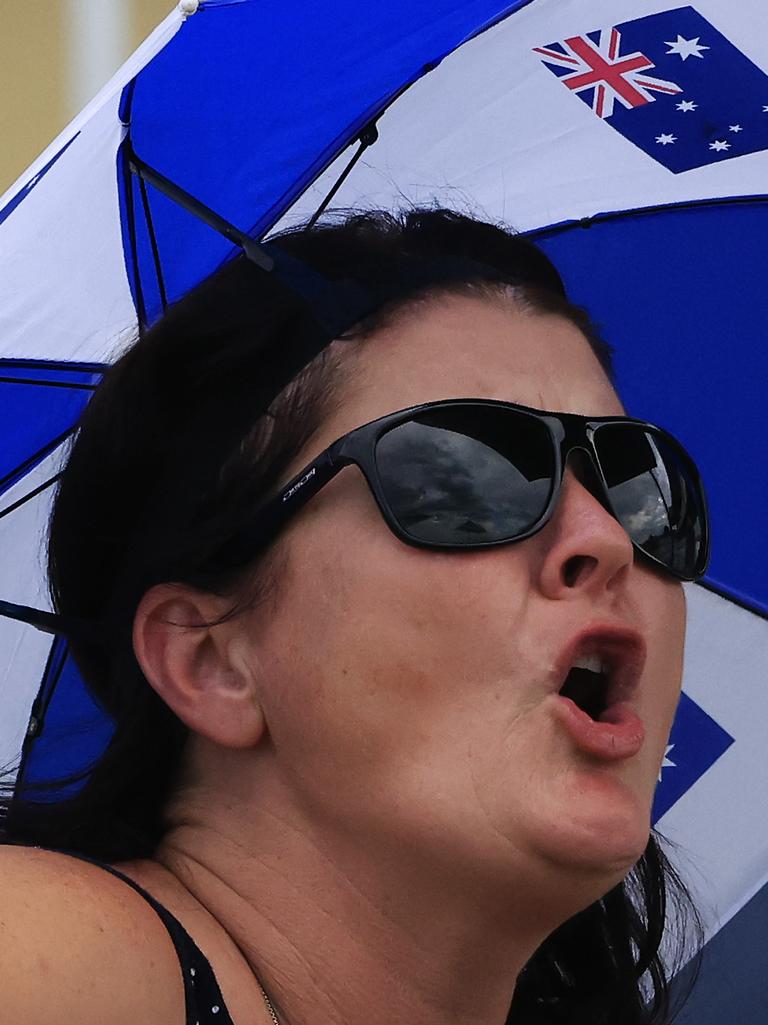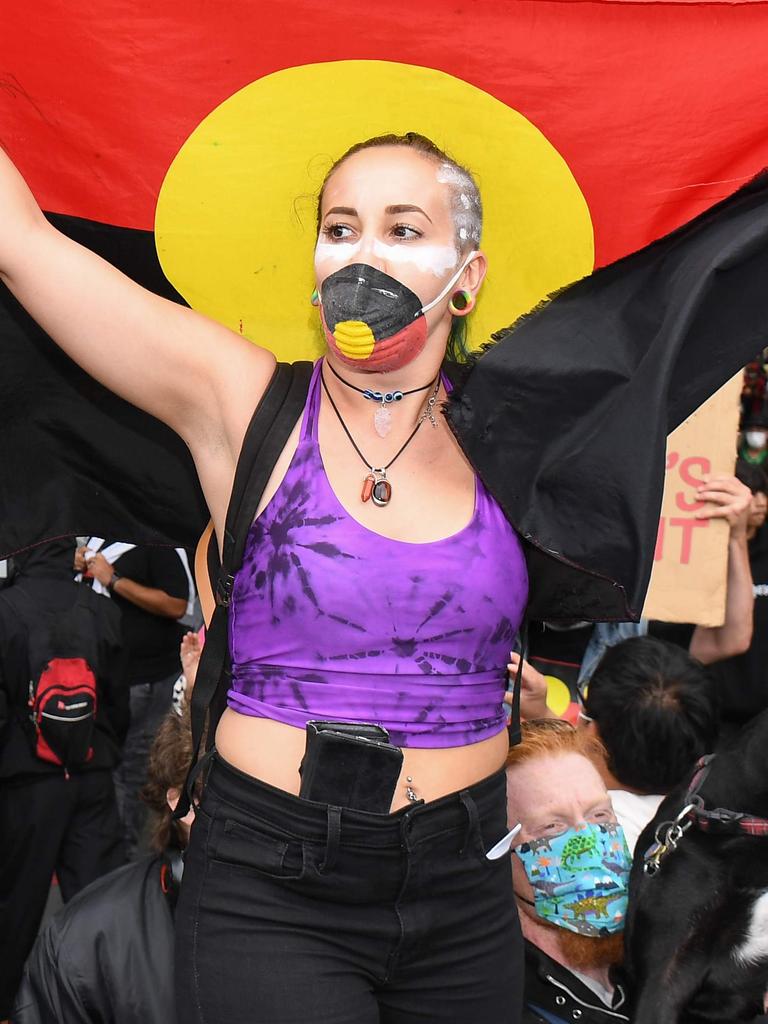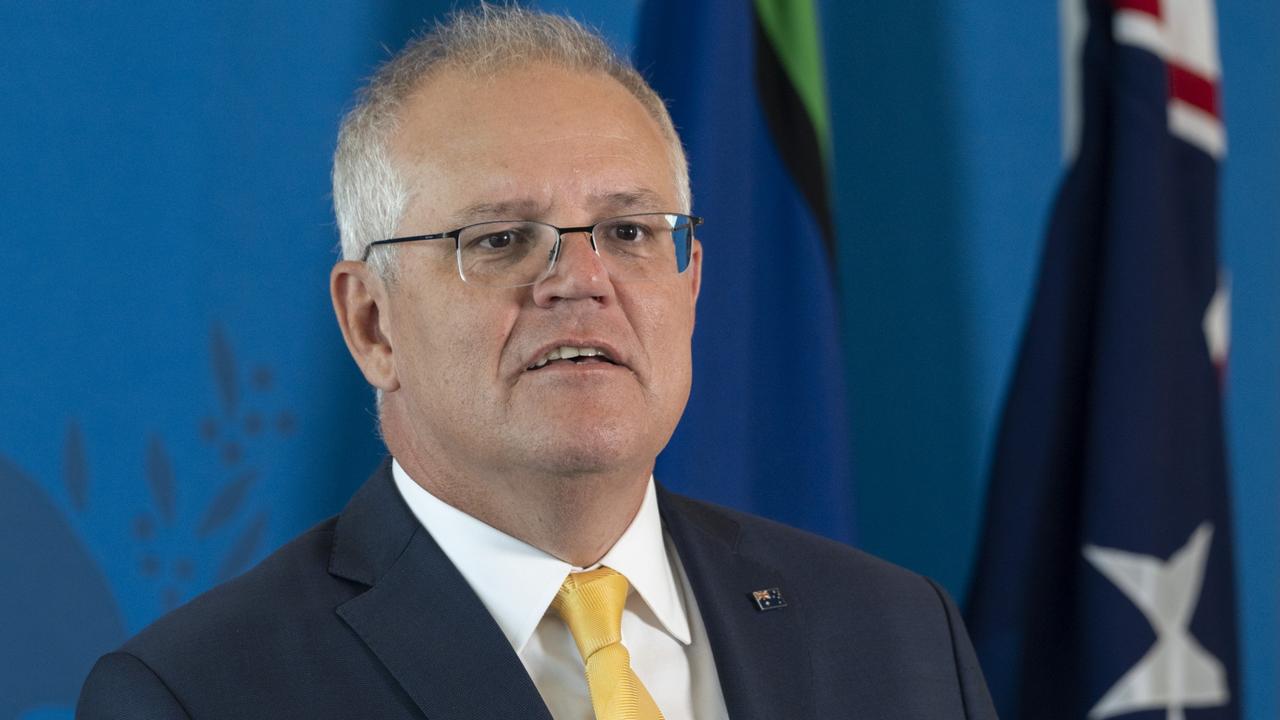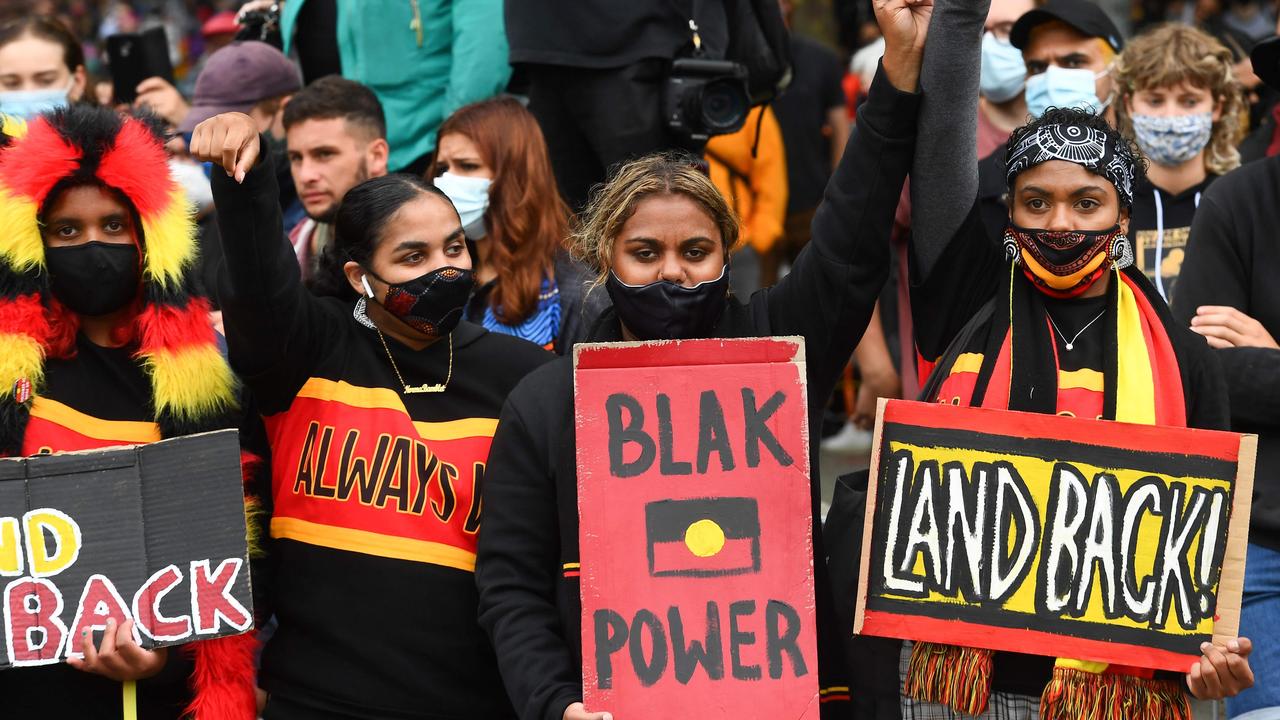Australia Day: January 26 scenes show nation’s racial divide
The contrasting scenes on Australia Day, coupled with successive opinion polls, show our nation’s racial divide. Can we ever move forward?
Tuesday marked 233 years since the First Fleet’s arrival at Port Jackson and raising of first British flag at Sydney Cove.
And as has been the case for at least the last five years, the public holiday saw thousands of Australians take to the streets in capital cities across the nation in protest against what to them is not Australia Day – which politicians uphold as a day of celebration and coming together – but Invasion Day – a symbol of inequity and institutionalised harm for our Indigenous people.
For many, January 26 does not, in the words of Prime Minister Scott Morrison, mark “how far we’ve come” as a nation or, as he said on Tuesday, symbolise how we continue to rise above our “brutal beginnings”.
Thousands of people at the Invasion Day rallies annually call for, among other things, a changing of the date to reflect the fact that for some, our national holiday represents more than the beginning of British colonialism in Sydney Cove. Tuesday was no different.
And yet their pleas are still falling, by an overwhelming margin, on deaf ears.
RELATED: World reacts to national holiday outrage


A survey released last Monday by the Institute of Public Affairs suggested that 69 per cent of Australians still believe the date should remain unchanged.
Asked which, out of ten dates, should mark our national holiday, a news.com.au survey proffered similar results: of more than 70,000 people, 52 per cent voted to keep Australia Day as it is.
The contrasting scenes in the last 24 hours – crowded beaches and Australian flags versus hundreds of marchers, peacefully calling for “greater awareness and understanding of Australia’s history” – have shown our nation’s continued racial divide.
“This is the ideological wrestling over which part of this continent’s history is more important: the 65,000 years before 1788, or the 240 that have followed,” the ABC’s national Indigenous affairs reporter, Isabella Higgins, wrote.
“A tussle to decide if the loss of the first inhabitants should be commemorated, or the success of the new Australians celebrated.”
But can we ever move forward?
Professor of History at ANU College of Arts and Sciences, Frank Bongiorno, believes there has been “positive development” in the rhetoric around our national holiday, but “(politicians’) idea that a civic day has to be full of hymns to national unity, seems to me, outdated”.
“There’s a fantasy among some that January 26 can somehow play the role, for Australians, of the USA’s Independence Day (July 4) or France’s Bastille Day (July 14),” he told news.com.au.
“But it can’t carry this kind of weight. These days come out of a revolutionary and republican tradition. Our January 26 does not signify independence, but British settlement or invasion...For many First Nations people, it is associated not only with one event – the arrival of the First Fleet – but a long history of oppression.”
RELATED: ‘Dumb’ thing to say about Australia Day


Professor Bongiorno pointed out that “there still isn’t a majority that wishes to change the date, and might not be for some time” – despite Indigenous people declaring a Day of Mourning as early as 1938.
But, he added, “surveys do suggest growing awareness that this is a painful day of many Indigenous people”.
A recent report from Reconciliation Australia showed that 90 per cent of Australians want to learn about past issues, and that 89 per cent support a formal truth-telling process.
“There are stark differences though between the attitudes of those 55 or above, and younger people,” Prof Bongiorno said.
“The latter (are) much more sympathetic to the idea of finding some other date for ‘Australia Day’.”
Academic and commentator on Indigenous affairs, Dr Anthony Dillon, said the “push” to change the date “has become more prominent, but I think the disagreements are the same”.
“If (moving forward) means having all or the majority of people agreeing on a date, then it is unlikely,” he told news.com.au, adding that he believes “resisting requests to change the date (does not) in any way demonstrate ill-will to Aboriginal people”.
“Maybe the date could be changed for practical reasons, like to the closest Monday to January 26,” Dr Dillon, who identifies with both his Aboriginal and non-Aboriginal ancestry, said.
“But I think many Aussies who don’t want the date changed are also tired of not seeing the same amount of energy used by those protesting against Australia Day, used on raising awareness on problems like child abuse and violence in Aboriginal communities.”
RELATED: Australia Day can’t survive as it is
While Prof Bongiorno believes “we are moving forward” and January 26 in 2021 looks “very different from Australia Day of a decade ago”, it’s denialism and “a reluctance to face up to what Australia’s history has been” that keeps the chasm in place.
“The conundrum invariably comes down to this: how can we mark and respect the love of country felt by so many settler Australians when that same country was taken from Indigenous people whose love for it is as intense as the pain of their loss?” he said.
“A lot of the debate around Australia Day seems to me to be about the effort to deal with this question. The insistence of some that we should all just smile and light up the barbecue is based on a denial of the existence of such a dilemma.”




